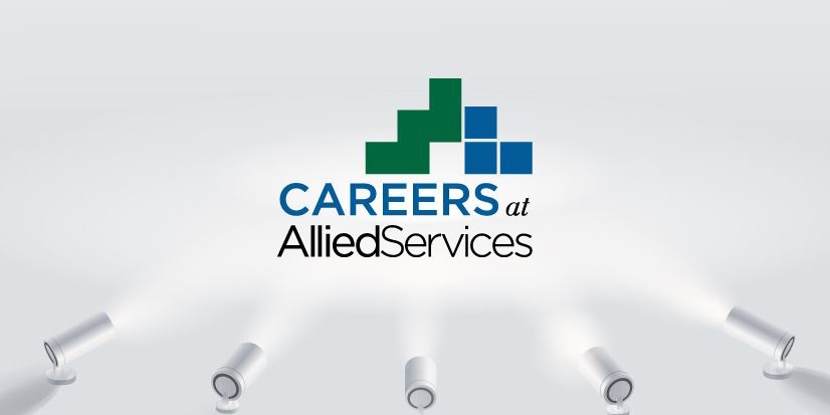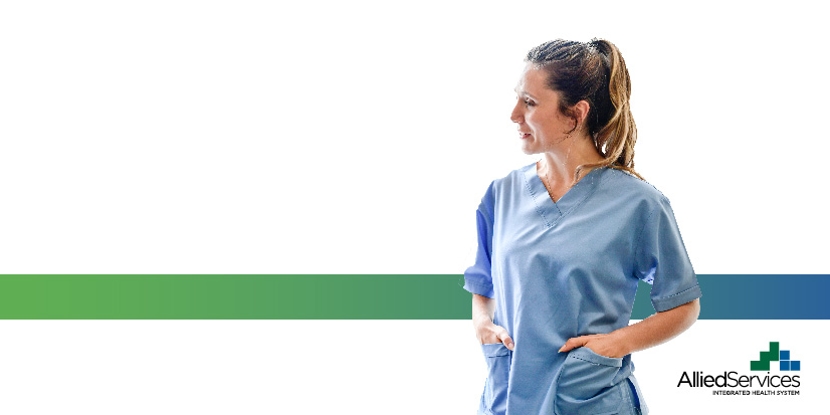In-Home Care: battling loneliness in Veterans
- Category: News, Career Opportunities, In-Home Care
- Posted On:
- Written By: Allied Services Integrated Health

Loneliness and social isolation among seniors have long been recognized as serious public health risks. A report from the National Academies of Sciences, Engineering, and Medicine (NASEM) found that one-third of adults aged 45 and older feel lonely, and nearly one-quarter of adults 65 and older are considered socially isolated.
Loneliness can take its toll on our bodies as well as our minds. Loneliness has been connected to physical health challenges, including increased risk of high blood pressure, cognitive decline, depression, and mortality. The NASEM 2020 report "Social Isolation and Loneliness in Older Adults: Opportunities for the Health Care System" found that:
- Social isolation significantly increased a person's risk of premature death from all causes, a risk that may rival those of smoking, obesity, and physical inactivity.
- Social isolation was associated with about a 50% percent increased risk of dementia.
- Poor social relationships (characterized by social isolation or loneliness) were associated with a 29% increased risk of heart disease and a 32% increased risk of stroke.
- Loneliness was associated with higher rates of depression, anxiety, and suicide.
The incidence of reported loneliness and isolation is higher in veterans than in the general population. According to the American Journal of Geriatric Psychiatry, 44% of veterans reported feeling lonely at least some of the time. In Veterans, greater age, disability in activities of daily living, lifetime traumas, perceived stress, and current depressive and post-traumatic stress disorder symptoms were also associated with loneliness.
The Department of Veterans Affairs identifies more than 1 in 5 Veterans live alone, putting them at risk of the associated physical and mental side effects.
So how can we help? Like seniors or individuals with disabilities or chronic illness, Veterans living alone may require and be eligible for caregiver services in the home. The opportunity to help a Veteran in your community may be as simple as enrolling as a caregiver. Local agencies like Allied Services In-Home provide non-medical, part-time care for veterans, seniors, and individuals with disabilities and chronic illness in the comfort of their homes. This might mean assisting with grocery shopping, preparing meals, light housework, or assisting with grooming and personal care.
Following on-the-job and classroom training, you could be paid to provide care to a Veteran; support that could help a Veteran living alone to remain independent in their home; support that would show a Veteran that you care; support that could mean the difference between a day spent alone and a day with moments of conversation, laughter and human connection.
Let's not wait until Veterans Day each year to offer our gratitude or support for those who have served our great Nation, protected our freedoms, and who need us now more than ever. If you have time on your hands and the capacity for caring, take the next step by becoming a caregiver in your community. It might be the most rewarding work of your life.
Tracy Hunt is Assistant Vice President of In-Home Care at Allied Services.
Become a Caregiver Today
Caregivers (also known as Direct Care Workers) make a meaningful impact in these peoples' lives, allowing them to remain in their homes safely. If you are already providing this type of care for a relative, we would like to pay you for your care! If not, we can train the right compassionate and caring people to join our team.
- Learn about becoming a Caregiver with Allied Services.
- Fill out a short inquiry form to get started as a Caregiver.
- Call us at 570-348-2210 to speak with us about Caregiver jobs.



